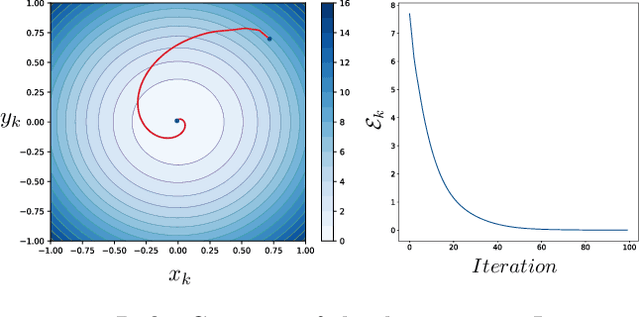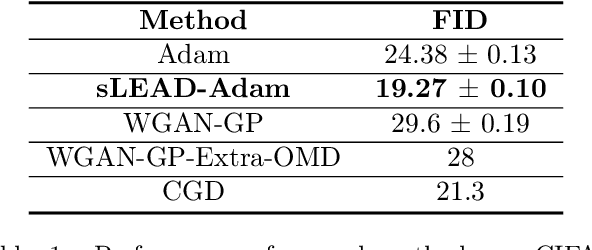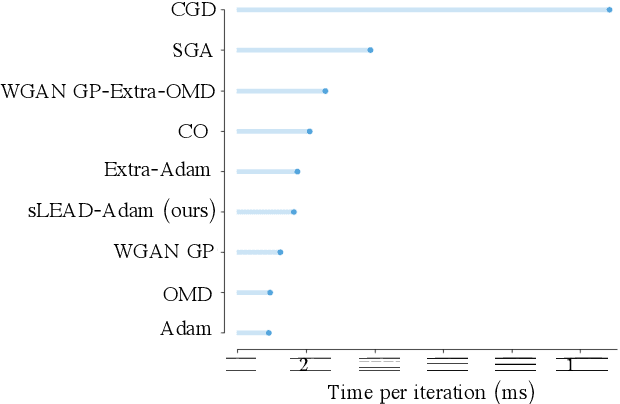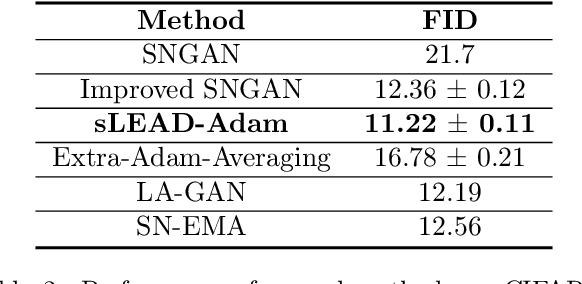LEAD: Least-Action Dynamics for Min-Max Optimization
Paper and Code
Oct 26, 2020



Adversarial formulations in machine learning have rekindled interest in differentiable games. The development of efficient optimization methods for two-player min-max games is an active area of research with a timely impact on adversarial formulations including generative adversarial networks (GANs). Existing methods for this type of problem typically employ intuitive, carefully hand-designed mechanisms for controlling the problematic rotational dynamics commonly encountered during optimization. In this work, we take a novel approach to address this issue by casting min-max optimization as a physical system. We propose LEAD (Least-Action Dynamics), a second-order optimizer that uses the principle of least-action from physics to discover an efficient optimizer for min-max games. We subsequently provide convergence analysis of our optimizer in quadratic min-max games using the Lyapunov theory. Finally, we empirically test our method on synthetic problems and GANs to demonstrate improvements over baseline methods.
 Add to Chrome
Add to Chrome Add to Firefox
Add to Firefox Add to Edge
Add to Edge